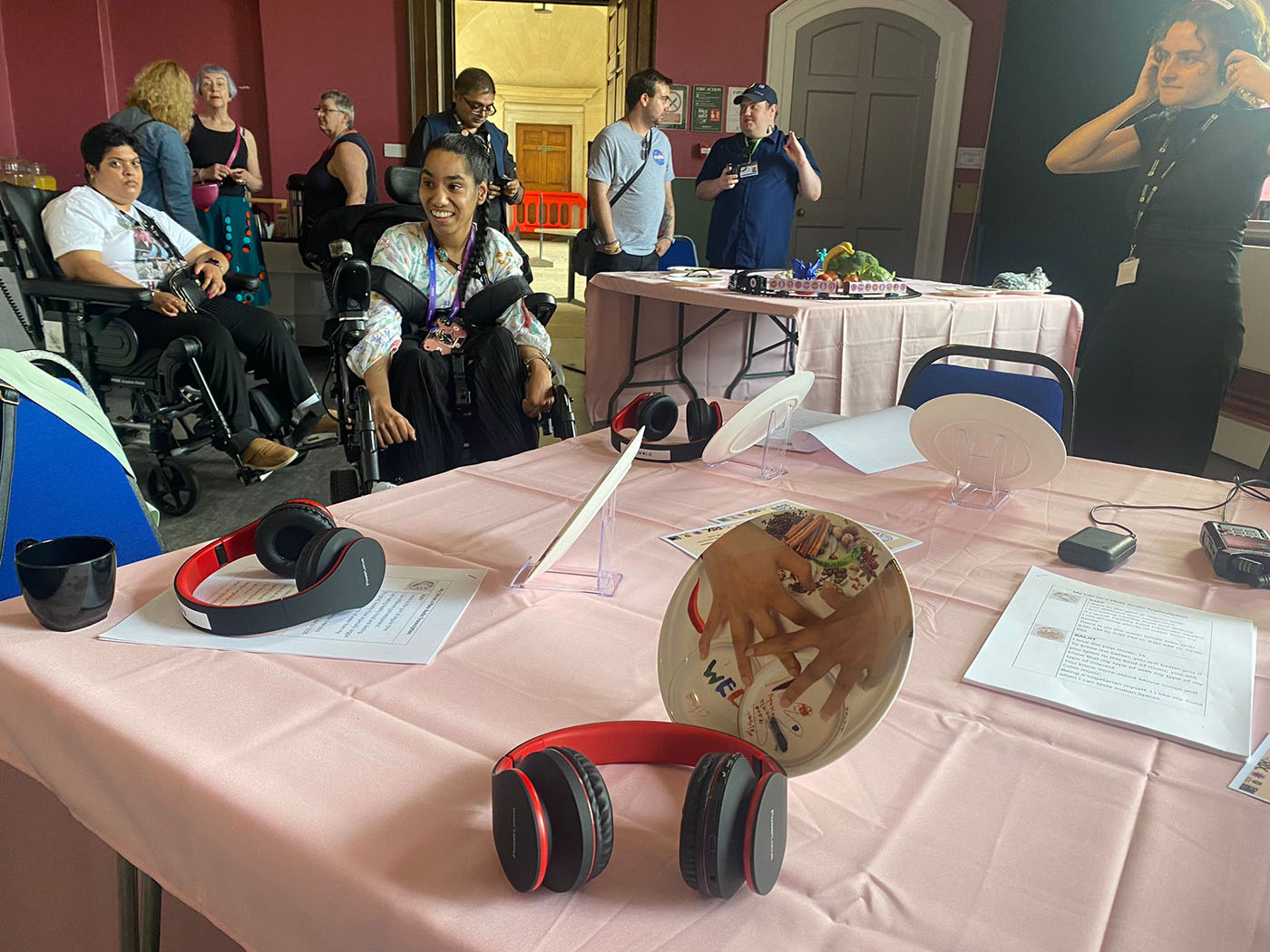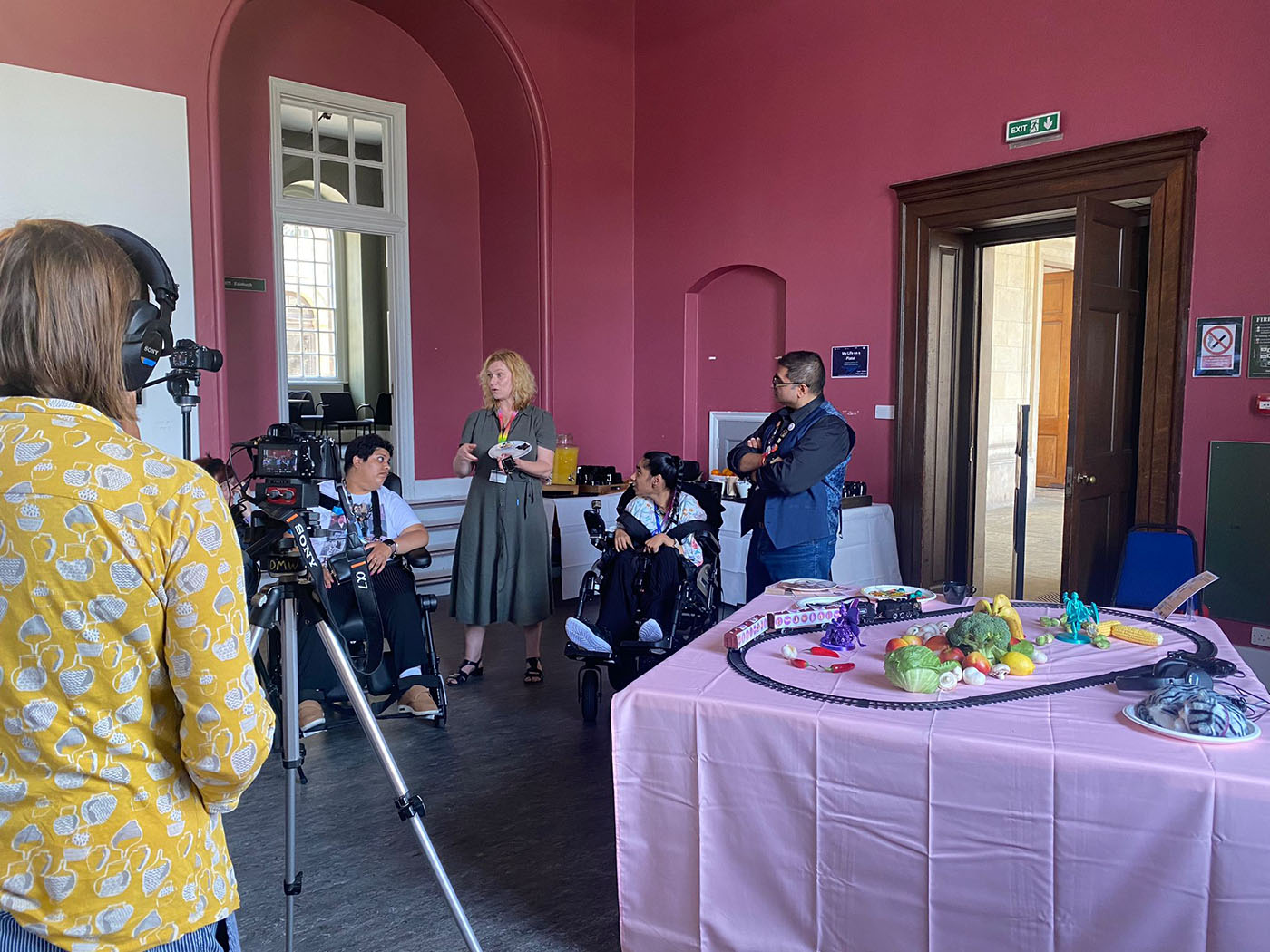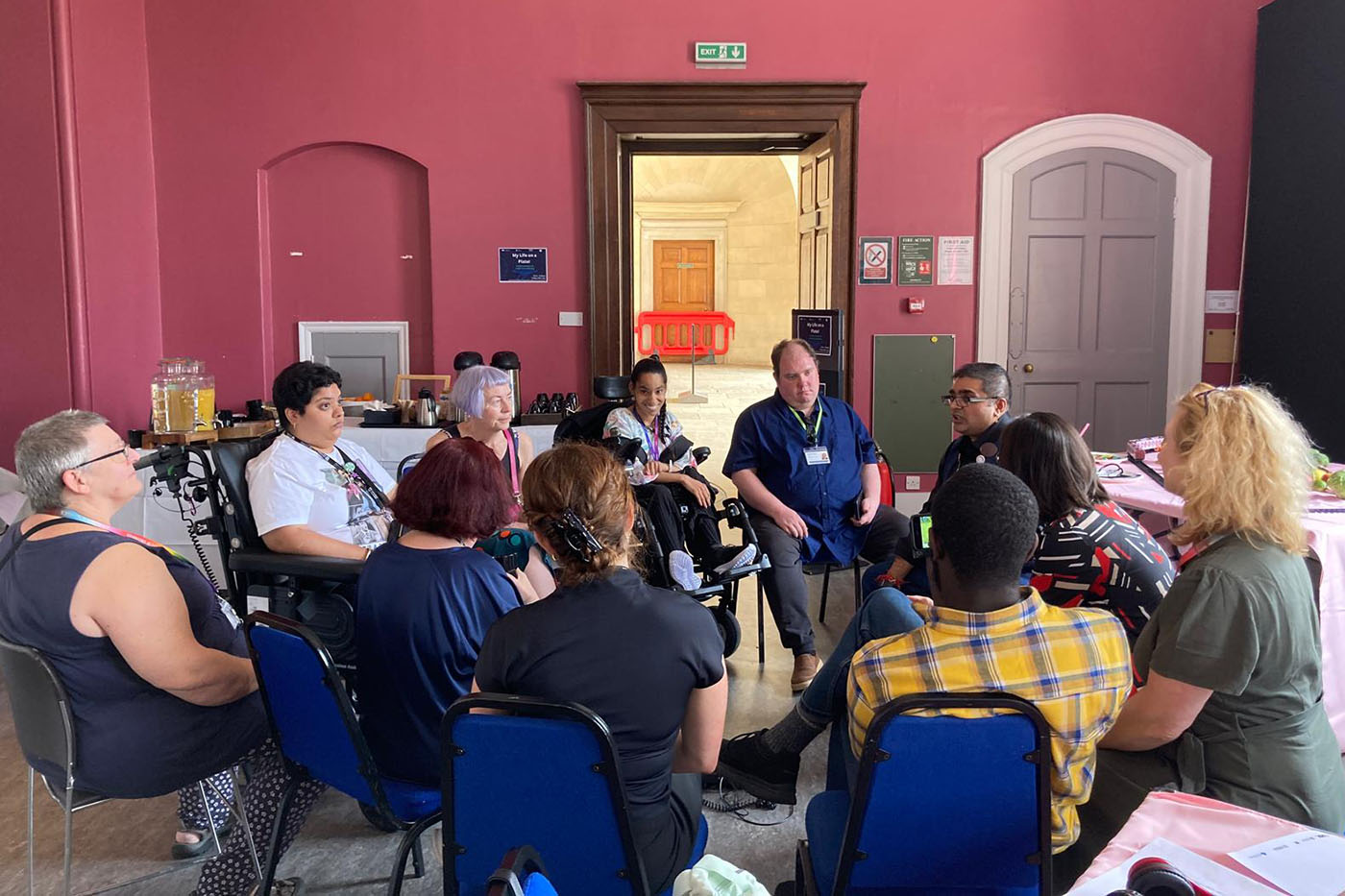This Friday, 26 July, I had the opportunity to attend the purpleSTARS My Life on a Plate exhibition, part of Living Well as You Get Older at the University of Greenwich. The event was attended by Rix co-researchers, professionals from many disciplines, and friends of the centre.
This experience was inspiring for me. The day consisted of setting up, showing the exhibit, debriefing around living well, and sharing ideas for future goals.
The gallery had plates that showed what made Rix researchers feel well. These plates consisted of favourite foods and activities that helped the body and the mind to feel well. This holistic approach to wellbeing stood out for me as I was walking around each plate. Often, and especially in my experiences in America, we only consider what makes the body well outside the mind. The mindset is that exercise and eating properly are a punishment for all the indulgent things we want to do, like eating sweets or watching TV, which make our brain feel good. There is an inherent paradox in this mindset. You are bad when you do the things that make you feel good, like eating sweets, and good when you do the things that make you feel bad, like going to the gym. Living well is not supposed to make you feel good, but you need to muscle through.

This exhibit took that idea and flipped it, asking the question: What do you do that makes you feel well and happy? Plates at the exhibit mentioned trains and someone’s favourite pair of Sketchers. As participants went around the exhibit, we could put on headphones to hear the co-researcher’s explanation of their plate. They had each produced their audio with music and explanations that matched the theme of their plate and explained what makes them feel good as an individual.
I got to walk around and listen to all the co-researchers’ audio. It was a fantastic experience as their voices painted the picture of their health, and I got to know each of them better through their interests. In addition to the plates, there was a purple table set out with the Portion Size Express, a toy train that represented food portions in relation to hand size. There was also a snuggly animatronic cat that simulated breathing, and fruits and veggies for the train to chug around.

At the crafting table, people were encouraged to make their own wellbeing plates with plasticine, crayons and markers, and figurines so they could create models. My favourite part of the day was hearing the researchers’ testimonials explaining what makes them feel good and how they are champions of their own health. We all sat in a circle and chatted about ways to use healthy habits to increase our wellbeing. We also workshopped ideas on how to develop experiences like this exhibit.
As an intern, I want to be a sponge for knowledge and experience. Through this exhibit, I was able to learn and have my perspective changed. Working in an inclusive team has opened my eyes to the conversations that people with learning disabilities are often not a part of, such as maintaining wellbeing and healthy habits. There are so many conversations that certain groups are excluded from that pertain very much to them. Rix is a champion for self-advocacy and includes every person in problem-solving for a better future.

In the past few weeks, I have been part of a truly inclusive team, unlike anything I’ve ever experienced. It’s great to feel part of something big, even for just these few weeks. I am returning to my home institution with a ferocious passion for advocacy and some tangible ways to make a difference.
Paige Alcott, Rix intern
My Life on a Plate – a sensory and interactive art installation – 3 mins
My Life on a Plate – a sensory and interactive art installation – 10 mins

